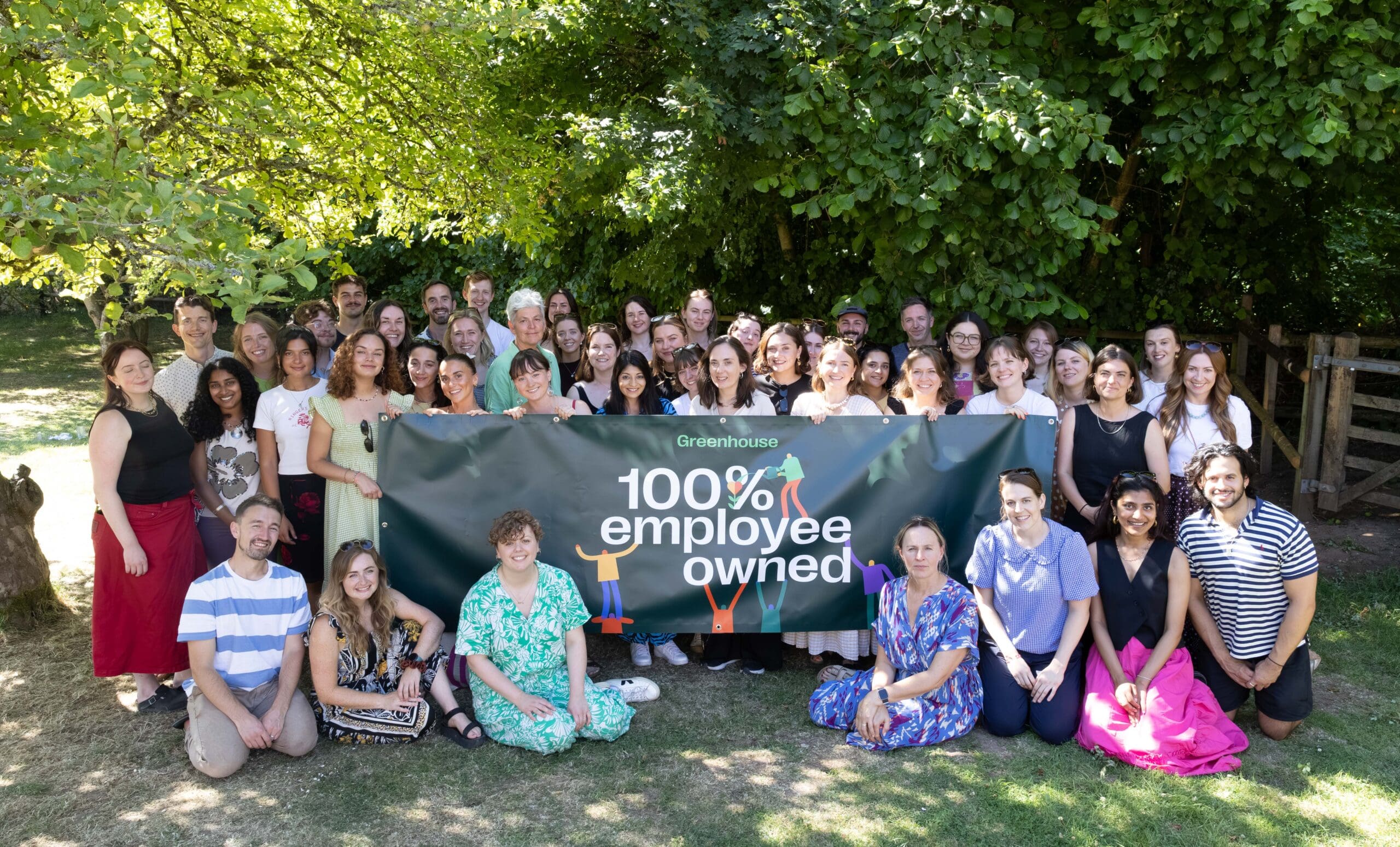Fairtrade Fortnight: Our top 5 food brands
Today is the last day of Fairtrade Fortnight, a time to consider who is involved in producing our food and drink and whether they are getting a fair deal.
What better way to round off Fairtrade Fortnight than to take a look at a few of our favourite Fairtrade food brands. But before we dive in, let’s recap what it actually means to be Fairtrade.
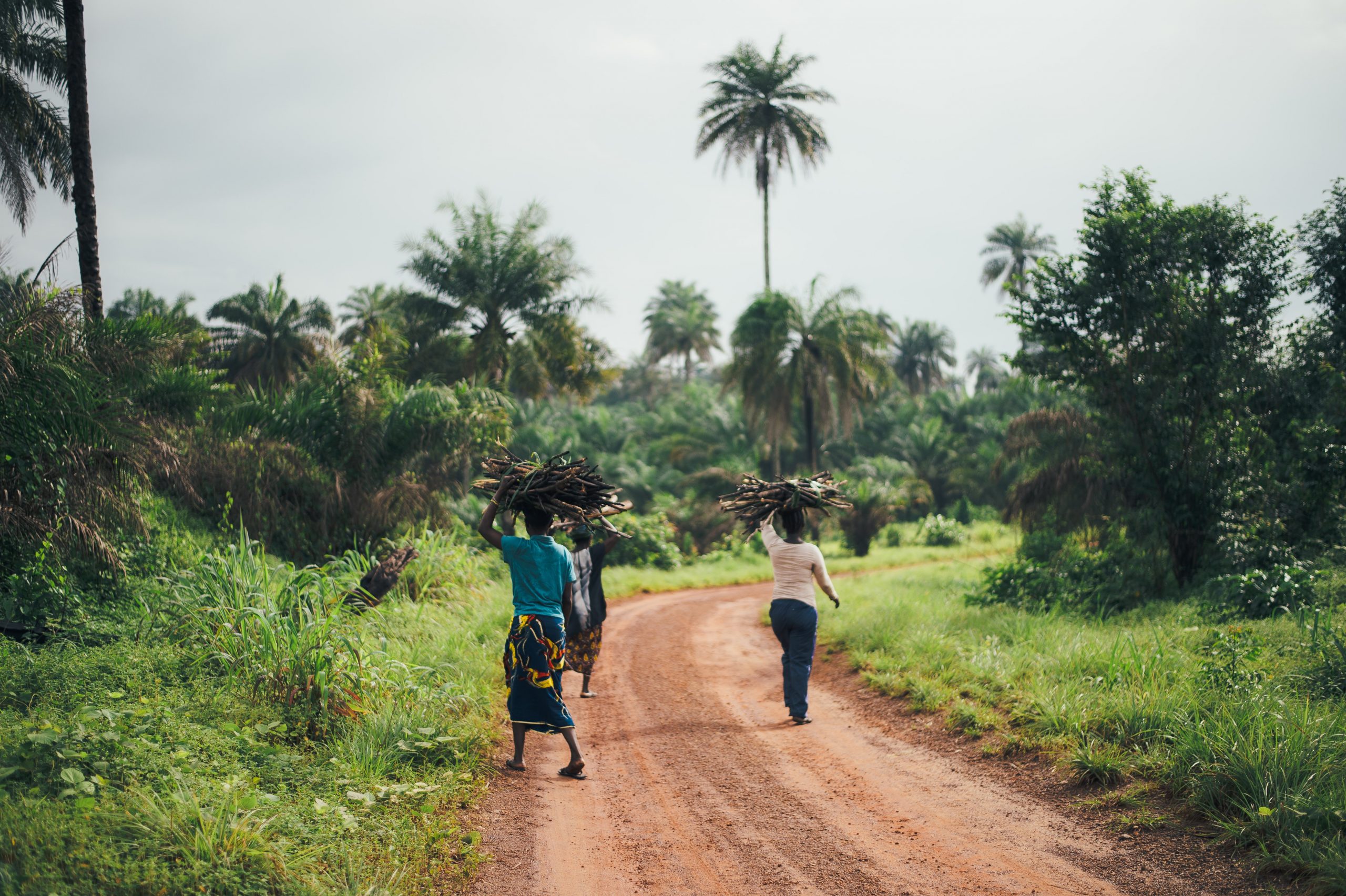
What is Fairtrade?
The Fairtrade mission is, “to connect disadvantaged farmers and workers with consumers, promote fairer trading conditions and empower farmers and workers to combat poverty, strengthen their position and take more control over their lives.”
Fairtrade works with businesses, consumers and campaigners to empower farmers and workers at the heart of supply chains. It helps to do this by setting social, economic and environmental standards for both companies and farmers.
The organisation independently checks that Fairtrade standards have been met by the farmers, workers and companies within a product’s supply chain, before certifying products and packaging with the FAIRTRADE Mark. This certification allows Fairtrade products to stand out from the crowd, helping us to make better choices when shopping.
Why choose Fairtrade?
The Fairtrade standard can ensure that farmers get the money they need to use best practice methods, keep their communities stable and encourage younger people into the industry. Fairtrade works by guaranteeing minimum prices and providing a premium to invest in local communities, so farmers can provide a better future for themselves and their families.
Fairtrade does all of the above and much more (which you can find out more about here). So, to end Fairtrade Fortnight 2020, let’s take a look at some of the Fairtrade food brands we love.
Cafédirect
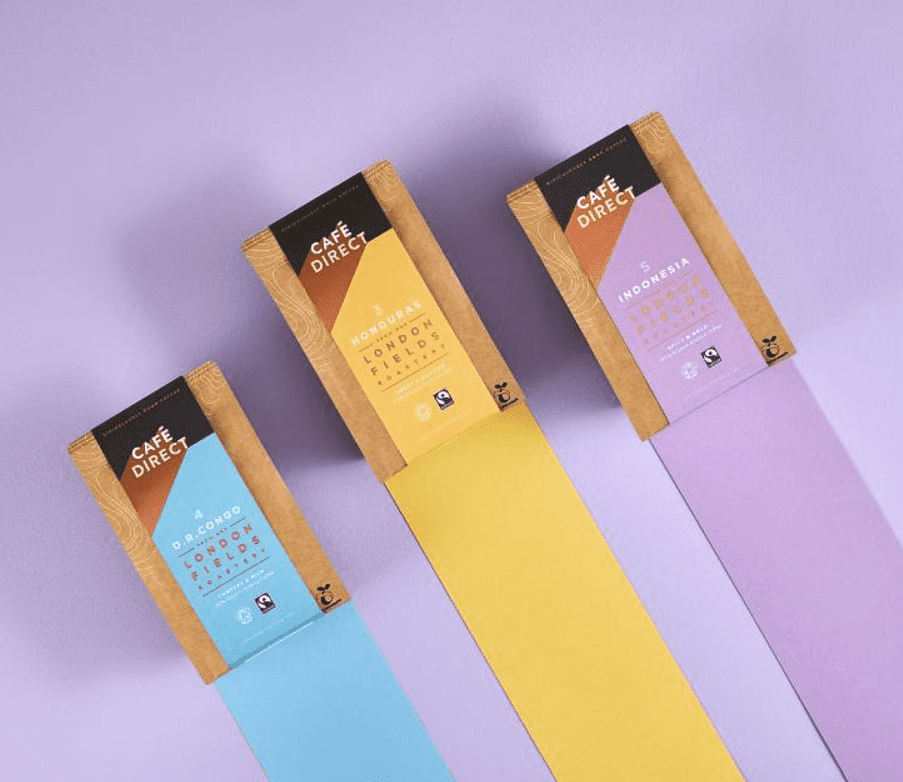 For almost 30 years, B Corp certified Cafédirect has pioneered the concept of business as a force for good, investing over half of its profits back into farmer communities and positively impacting the lives of one million people and counting. To date, Cafédirect has contributed over £14.5 million in Fairtrade Premiums, which cooperatives are able to spend on improving the quality of their crops through sustainable methods that support both people and planet.
For almost 30 years, B Corp certified Cafédirect has pioneered the concept of business as a force for good, investing over half of its profits back into farmer communities and positively impacting the lives of one million people and counting. To date, Cafédirect has contributed over £14.5 million in Fairtrade Premiums, which cooperatives are able to spend on improving the quality of their crops through sustainable methods that support both people and planet.
Not only is Cafedirect Fairtrade and a B Corp, but nearly 40% of the coffee it purchases is organic and certified by the Soil Association. This means that smallholders benefit from the organic premium and soil is healthier and less susceptible to erosion or extreme weather. Carbon emissions are also reduced by using organic fertilisers made from local waste. But most importantly, it means better tasting coffee.
PROPERCORN
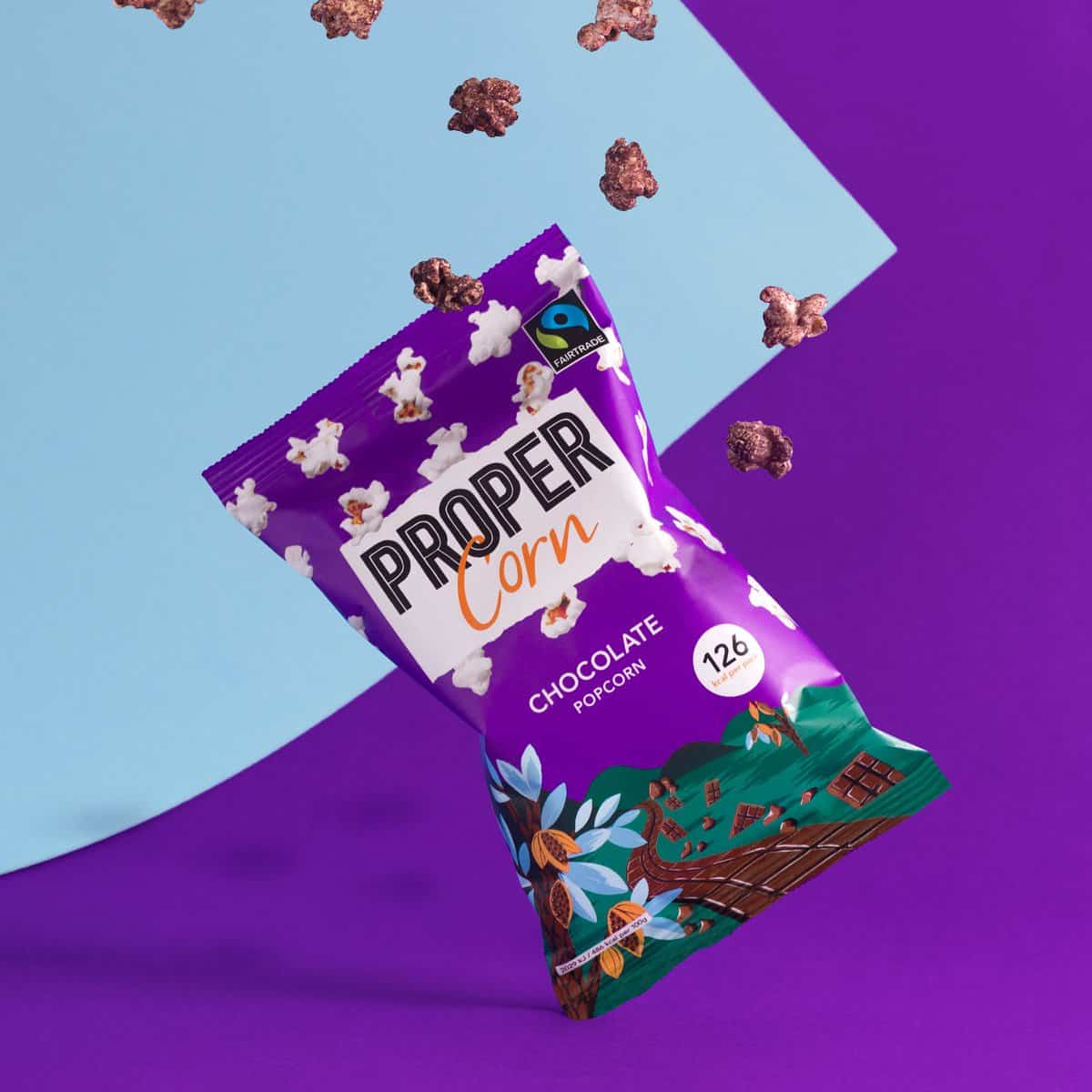 When you think of popcorn, Fairtrade doesn’t necessarily spring to mind, but British brand PROPERCORN are here to change that.
When you think of popcorn, Fairtrade doesn’t necessarily spring to mind, but British brand PROPERCORN are here to change that.
PROPERCORN are a proud B Corp and host four new business owners during Global Entrepreneurship Week to provide them with the mentoring, workshops and space they need to get their business idea off the ground.
The PROPERCORN team tried five different types of sugar before choosing Fairtrade Demerara to coat their hand-popped butterfly corn. Chocolate flavour is Fairtrade Peruvian cocoa – delicious.
Zaytoun
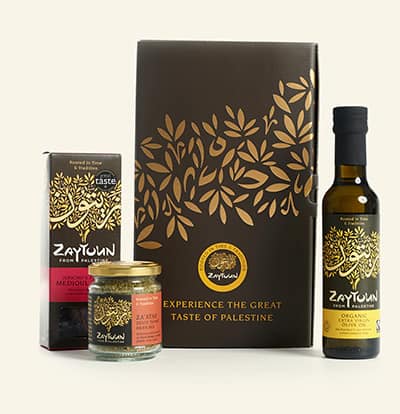 Founded in 2004 to support Palestinian farmers under occupation by trading their olive oil, Zaytoun quickly established itself as a UK social enterprise.
Founded in 2004 to support Palestinian farmers under occupation by trading their olive oil, Zaytoun quickly established itself as a UK social enterprise.
With funding from Triodos Bank, Zaytoun has developed a wide range of artisan Palestinian foods. In 2009, the company supported Palestinian farmers to pioneer the world’s first Fairtrade certified olive oil.
Over 15 years later it remains a successful community interest company, supporting the relationship between Palestinian producer communities and its growing UK customer base. We are big fans of their Za’atar Zesty Thyme Herb Mix.
Not only does Zaytoun make wonderful Fairtrade artisan foods, but it also supports olive tree planting project, Trees for Life, run by the Palestine Fair Trade Association – and has planted 57,174 trees to date.
Clipper
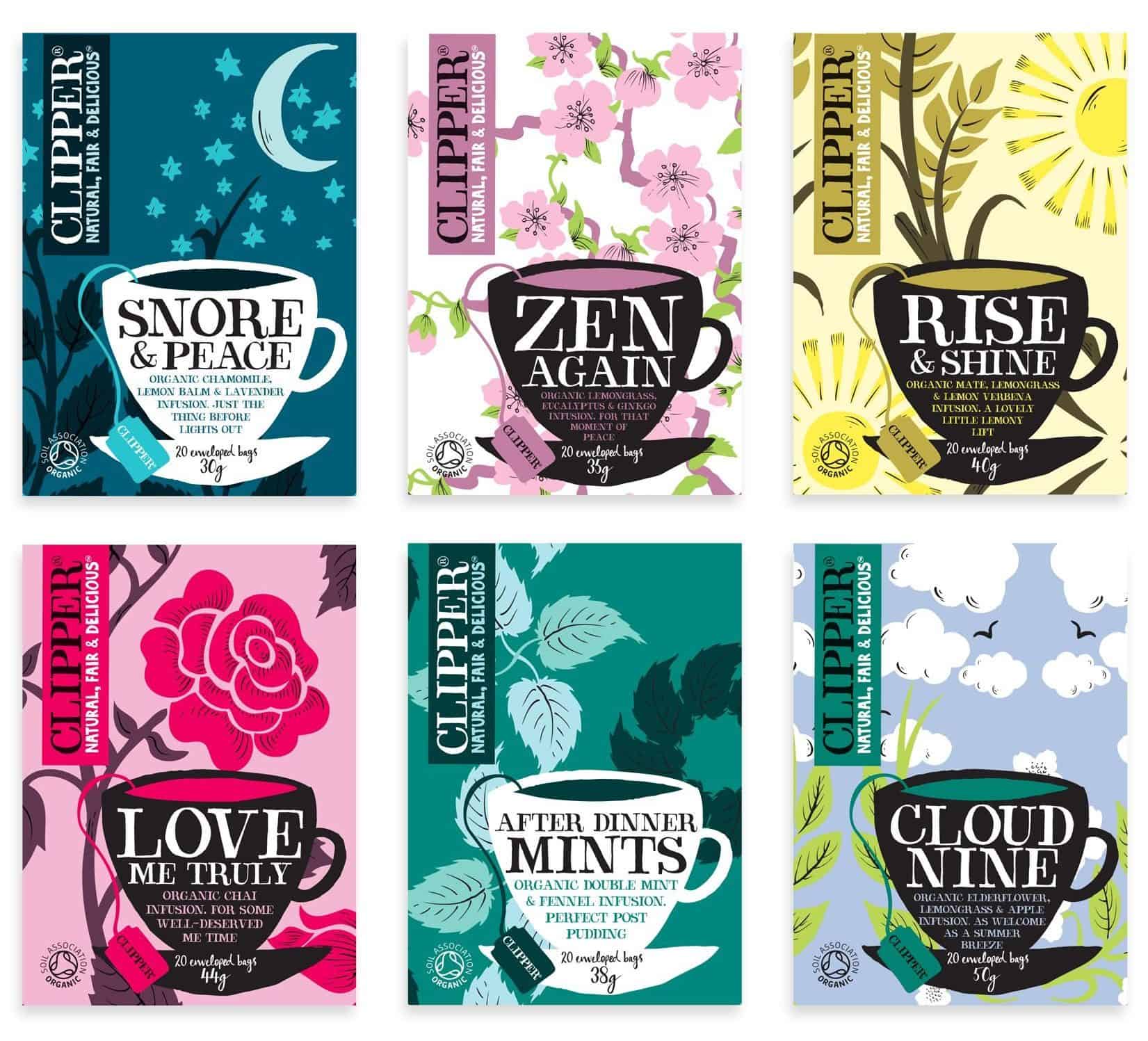 Clipper Teas has a lot to shout about with it’s great taste and beautiful packaging, but there’s more. It also happens to be the world’s largest Fairtrade tea brand, supporting over 114,000 producers and their families to have access to education, medical care and a fair, stable income.
Clipper Teas has a lot to shout about with it’s great taste and beautiful packaging, but there’s more. It also happens to be the world’s largest Fairtrade tea brand, supporting over 114,000 producers and their families to have access to education, medical care and a fair, stable income.
Many teabags contain polypropylene – an oil-based plastic that is damaging to the environment. Clipper has developed a plastic-free teabag, sealed with plant cellulose, which is entirely natural and much more environmentally friendly. As well as being plastic-free, Clipper Teas are also pesticide-free and filled with organic ingredients only. So you can sit back, sip your tea and think about the wildlife and people you are supporting by choosing an organic, Fairtrade brew.
Divine
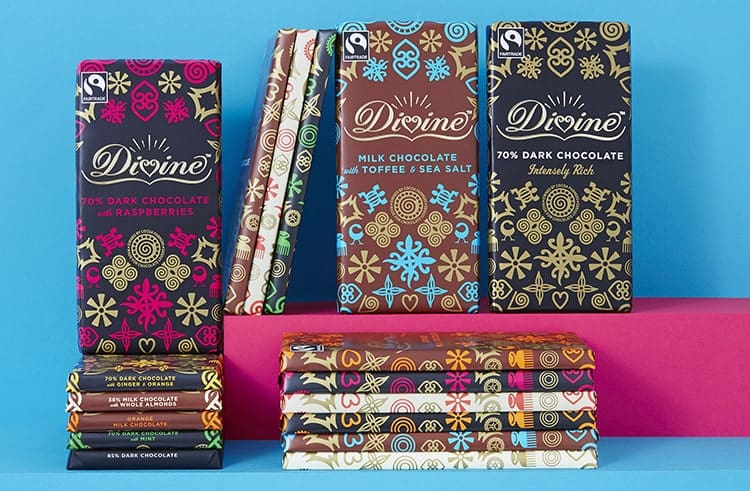 Divine is unique in that it is a Fairtrade, certified Organic, B Corp global social enterprise that is 44% owned by a cooperative of farmers formed in Ghana in 1998. This gives the cooperative a share of profits and a much stronger voice in the cocoa industry.
Divine is unique in that it is a Fairtrade, certified Organic, B Corp global social enterprise that is 44% owned by a cooperative of farmers formed in Ghana in 1998. This gives the cooperative a share of profits and a much stronger voice in the cocoa industry.
Divine is great at raising awareness of the Fairtrade story, too. The ‘Bean to Bar’ approach means the company can trace the cocoa in any bar of chocolate produced back to the co-operative village from which it originated.
The business also invests 2% of its revenue back into projects which are set up to either empower women, provide adult education, or promote good governance. If that doesn’t persuade you to support Divine, it also helps that the chocolate looks and tastes incredible.
We hope you get the chance to try some of our favourite Fairtrade food brands beyond Fairtrade Fortnight. It’s time to consider who produces our food and help create a fairer system for everyone. Just look for that Fairtrade mark.
Greenhouse PR works with organisations and leaders who are pioneering climate action. Whether it’s food, fashion, finance or farming, if you’ve got a great story and need our help to tell it, get in touch with the Greenhouse team on 0117 214 1250 or email info@greenhousepr.co.uk.
